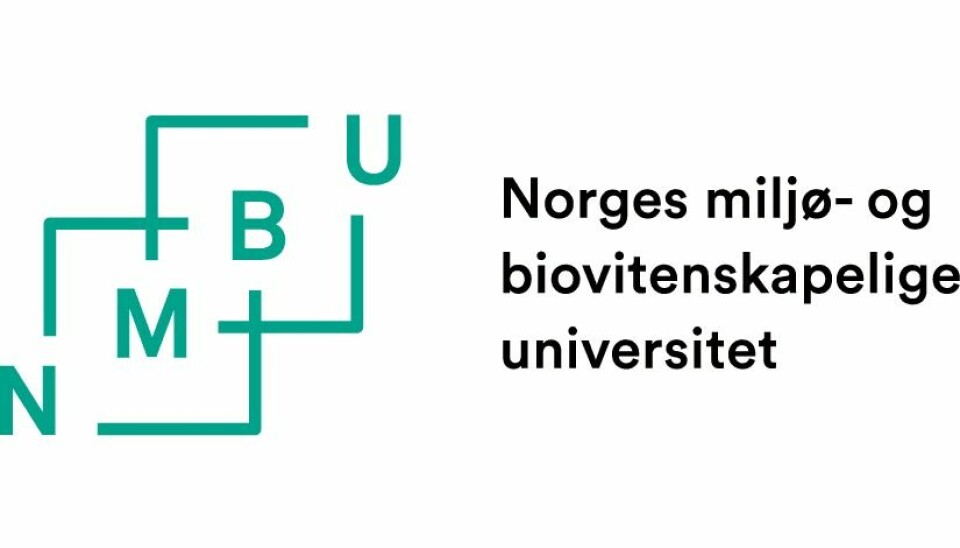Ledig stilling ved NMBU
PhD position assessing biological implications and risks implementation of new gene tools in modern bio - production
Deadline: 05.05.2019
About the position
The Department of Animal- and Aquacultural Sciences (IHA), Faculty of Biosciences (BIOVIT), at the Norwegian University of Life Sciences (NMBU) is inviting applications for a 3-year PhD research fellow position using gene editing (CRISPR-Cas9) to study genetic interaction effects in order to reveal non-predictable consequences of gene editing in fish species.

The successful candidate will integrate with, and support, the “EcoGENE” research project (“Assessment of economic and biological implications, prospects and risks by implementation of new gene tools in modern bio-production”), funded by the BIONÆR program in the Research Council of Norway.
The successful candidate will join CIGENE, a multidisciplinary genome biology research group possessing expertise in genetics, evolutionary and comparative genomics, bioinformatics and systems biology. Located within the Department of Animal- and Aquacultural Sciences, this group includes 2 full-time professors, 2 associate professors, 1 center coordinator, 11 researchers, 4 postdocs, 8 PhD students and 10 research technicians.
CIGENE has a strong aqua- and agri- research profile, with key strengths in the application of ‘omics’ data to understand the genetic architecture of complex traits. The group wishes to use functional genomics technologies, including gene editing, in order to better understand the biology underlying specific genotype-phenotype associations. CIGENE has excellent wet and dry lab facilities for automated high-throughput omics, and bioinformatics.
Main tasks
In this project we will study the effect of CRISPR/Cas9 edits to sex determination genes in Tilapia (a model species relevant both biologically and as a production animal) and possibly other edits in other fish species.
Concerns about the introduction of large deletions and other off-target effects after CRISPR/Cas9 cutting of DNA have been raised, so there is a need to assess the challenges of new gene editing tools in bio-production. Consideration will be given to the interaction effects between genes, and we will study these in detail to discover any unexpected consequences of GE. We also aim to investigate the effects of newer CRISPR tools, such as activators and repressors of transcription, which do not cut the DNA.
The candidate must carry out high-level research relevant for the project, including critical assessment of the literature, planning and performance of experiments, method development, oral presentations and discussion of the work, and writing scientific publications.
The successful candidate is expected to have a PhD education plan approved by BIOVIT within the first months of appointment, and to complete the PhD by the end of the project period.
The post will provide a unique opportunity to ambitious individuals that enjoy a creative, interactive, interdisciplinary and international academic environment and seek personal development.
Qualifications and skills
The successful applicant must meet the conditions defined for admission to a PhD programme at NMBU. The applicant must have an academically relevant education corresponding to a five-year Norwegian degree programme, where 120 credits are at master's degree level. The applicant must have a documented strong academic background from previous studies and be able to document proficiency in both written and oral English. For more detailed information on the admission criteria please see the PhD Regulations and the relevant PhD programme description.The applicant must document expertise and interest in the research subject.
Required academic qualifications
- A master’s degree within the area of biotechnology, e.g. functional genomics, molecular biology, cell biology, or similar
- Recent, practical lab experience with gene editing, molecular and cellular biology, or cell culture techniques
The following qualifications will be considered beneficial
- Practical experience with CRISPR-Cas9 or other gene editing approaches
- Experience with analyses of genomics/transcriptomics/epigenomics data
- Relevant statistical and programming skills
We are looking for candidates who are/have:
- Motivated and have a positive attitude
- Hard-working, ambitious and accurate
- Analytical and academic approach to research questions
- Good social and communicative skills
- Prepared to perform independent work displaying initiative and creativity within a larger team structure
- Proficient in English, both written and spoken. Proficiency in Norwegian is not required but is advantageous.
Remuneration and information
The position is placed in government pay scale position code 1017 PhD Fellow, wage framework 20, salary grade 51-62. PhD Fellows are normally placed in pay grade 51 (NOK 449 400) on the Norwegian Government salary scale upon employment and follow ordinary meriting regulations.
Employment is conducted according to national guidelines for University and Technical College PhD scholars.
For further information, please:
- Dr. Guro Sandvik by email: guro.sandvik@nmbu.no, or phone +47 48290403; or
- Project leader Prof. Hans Magnus Gjøen by email: hans.magnus.gjoen@nmbu.no, or by phone +47 67232714
Information for PhD applicants and general information to applicants
Application
To apply online for this vacancy, please click on the 'Apply for this job' button above. This will route you to the University's Web Recruitment System, where you will need to register an account (if you have not already) and log in before completing the online application form.
Application deadline: May 5th 2019
Applications should include (electronically) a letter of intent, curriculum vitae, full publication list, copies of degree certificates and transcripts of academic records (all certified), and a list of two persons who may act as references (with phone numbers and e-mail addresses). Publications should be included electronically within the application deadline. The relevant NMBU Department may require further documentation, e.g. proof of English proficiency.
If it is difficult to judge the applicant’s contribution for publications with multiple authors, a short description of the applicant’s contribution must be included.






